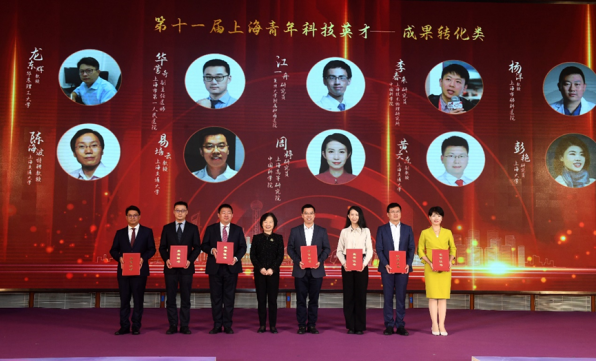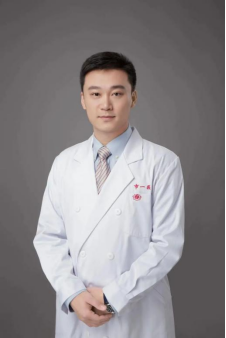- News
Dr. Yingqi Hua, Deputy Chief Surgeon of Shanghai General Hospital Awarded the Honorary Title of the 11th Shanghai Youth Science and Technology Talent (Category for Achievement of Translational Research )
Link of the original article:https://mp.weixin.qq.com/s/fi-xaOT_nwY08j93luIUYA

On Nov.4, Shanghai Young Science and Technology Talent Association was held in Shanghai Science Hall International Conference Hall. Prof.Yingqi Hua of Shanghai General Hospital was awarded the honorary title of the 11th Shanghai Young Science and Technology Talent (Category for Achievement of Translational Research). Mr. Xingfa Ma, the Party Secretary of Shanghai Association for Science and Technology presided over the ceremony. Prof.Jie Zhang, academician of Chinese Academy of Sciences, former President of Shanghai Jiaotong University, Prof.Saijuan Chen, academician of Chinese Academy of Sciences, issued the honorary certificates and took a group photo for the scientific and talents.
The Shanghai Young Science and Technology Talent is held once every two years and is jointly led by the Shanghai Association for Science and Technology and the Shanghai Science and Technology Development Foundation to reward outstanding young science and technology workers who have made important contributions to the development of national science and technology, the promotion of scientific and technological progress and economic and social development in Shanghai. This year, there are 10 young science and technology talents in Shanghai who are awarded in the categories of basic research, achievement in translational research and enterprise innovation. The winners are mainly between 35 and 40 years old, and they not only have active innovative thinking and broad innovative vision, but also mature innovative experience and stable innovative direction, presenting the innovation level of Shanghai's science and technology.

Yingqi Hua has been engaged in the clinical treatment and research of malignant bone tumors for a long time, focusing on the scientific problem of "molecular mechanism of osteosarcoma heterogeneity and intervention strategy" and carrying out precision diagnosis and treatment research of osteosarcoma. Over the past ten years, he has established a large sample of osteosarcoma patients in China, developed a multi-omics database for osteosarcoma, a PDX model library and a pharmacogenomic screening platform, discovered metabolic markers for the early diagnosis of osteosarcoma lung metastasis, and developed a test product that has received medical device registration and is now successfully used in clinical practice. They have established a new method for molecular typing of osteosarcoma and proposed a new strategy for targeted therapy, which provides a theoretical basis for improving the overall prognosis of osteosarcoma patients.
